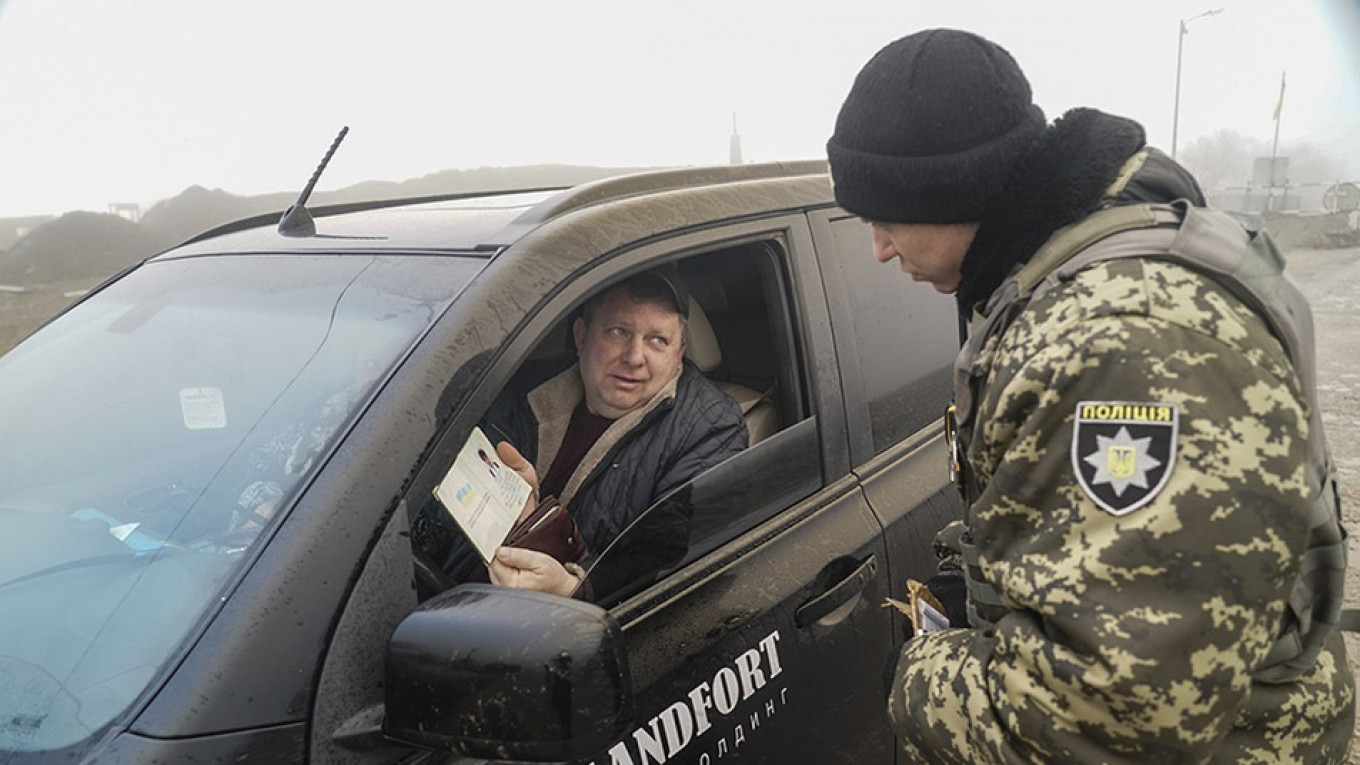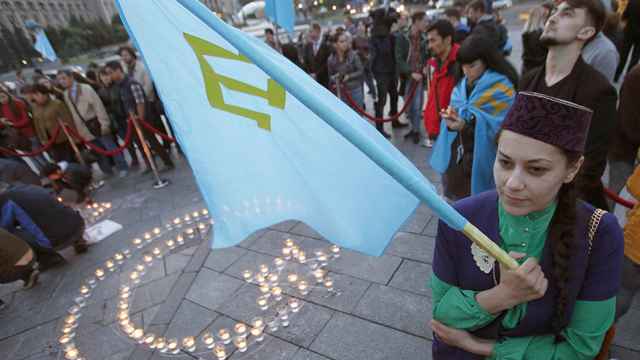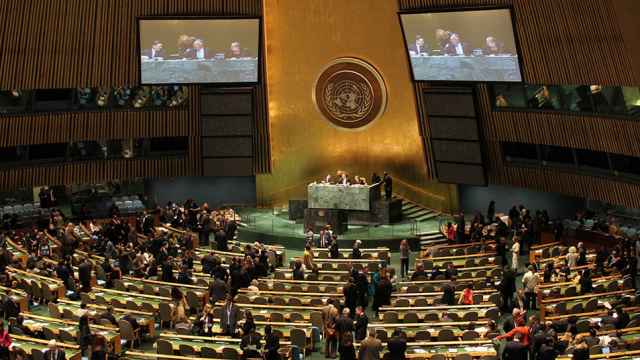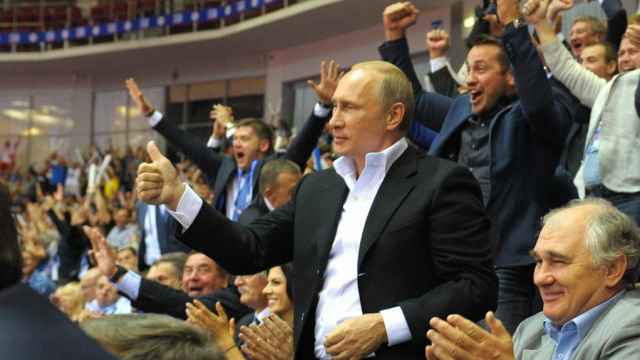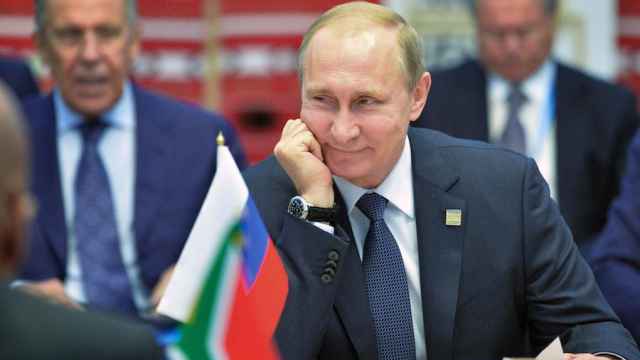Ukraine's border service said on Thursday that it would only allow Ukrainian citizens to travel to Crimea following the imposition of martial law until Dec 26.
President Petro Poroshenko earlier accused Russia's President Vladimir Putin of wanting to annex all of Ukraine and called for NATO to deploy warships to a sea shared by the two nations. Poroshenko said earlier in the day that “restrictions” would be imposed on Russians in Ukraine, including on travel and banking transactions. A Ukrainian law that went into effect earlier this month introduced jail terms of up to eight years for crossing the country’s border with fake documents or without travel documents.
"[T]he administrative border with temporarily occupied Crimea can only be crossed with Ukrainian documents," Vasyl Seratyuk, the deputy chief of Ukraine’s border service, said on Thursday.
The 30-day martial law will not affect Ukrainian citizens’ freedom of movement, he said in a statement on the border service website.
“Special attention will be paid to risk groups,” Seratyuk said. The border service explained to the BBC Ukrainian service that the term refers primarily to Russian citizens.
The border crossing suspension coincides with reports from the Belarussian border that scores of Russian citizens had been denied entry to Ukraine for unspecified reasons since Russia seized three vessels off the coast of Crimea last Sunday.
Russia seized the Crimean peninsula from Ukraine in 2014 and has been accused of providing support to pro-Russian separatists in eastern Ukraine.
Crimea's Russia-backed authorities criticized the ban, saying that it would fail to prevent foreigners from visiting the peninsula as they could enter it through Russian territory.
Yuriy Gempel, the head of the Moscow-backed Crimean parliament's committee on multinational relations, called the ban a "blatant and cynical violation of human rights," the state-run RIA Novosti news agency reported on Friday.
"Foreigners have long been traveling to Russian Crimea through Russia," he said, adding that "the number of foreigners in Crimea would not decrease."
Reuters contributed reporting to this article.
A Message from The Moscow Times:
Dear readers,
We are facing unprecedented challenges. Russia's Prosecutor General's Office has designated The Moscow Times as an "undesirable" organization, criminalizing our work and putting our staff at risk of prosecution. This follows our earlier unjust labeling as a "foreign agent."
These actions are direct attempts to silence independent journalism in Russia. The authorities claim our work "discredits the decisions of the Russian leadership." We see things differently: we strive to provide accurate, unbiased reporting on Russia.
We, the journalists of The Moscow Times, refuse to be silenced. But to continue our work, we need your help.
Your support, no matter how small, makes a world of difference. If you can, please support us monthly starting from just $2. It's quick to set up, and every contribution makes a significant impact.
By supporting The Moscow Times, you're defending open, independent journalism in the face of repression. Thank you for standing with us.
Remind me later.


